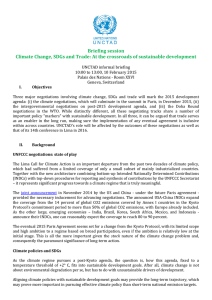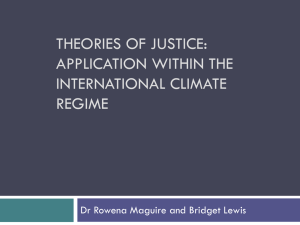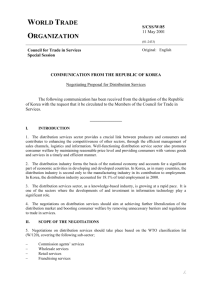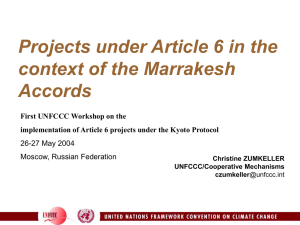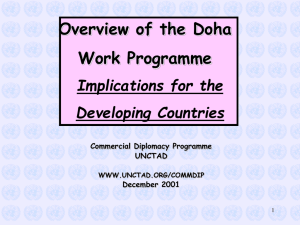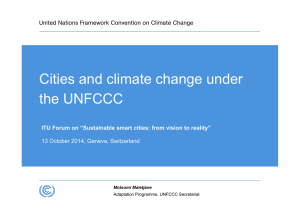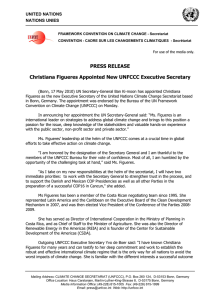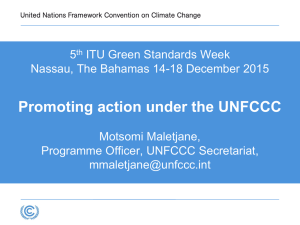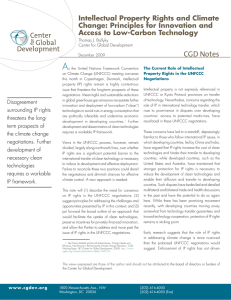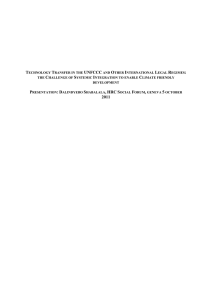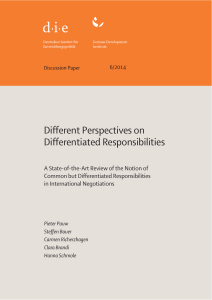Development and CC Challenge p g
advertisement
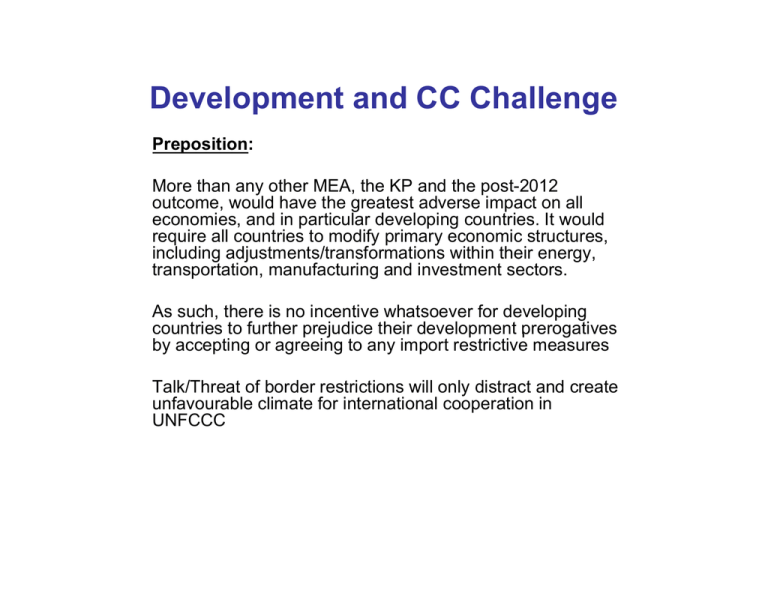
Development p and CC Challenge g Preposition: More than any other MEA MEA, the KP and the post post-2012 2012 outcome, would have the greatest adverse impact on all economies, and in particular developing countries. It would require all countries to modify primary economic structures, including c ud g adjus adjustments/transformations e s/ a s o a o s within their e e energy, e gy, transportation, manufacturing and investment sectors. As such, there is no incentive whatsoever for developing countries to further prejudice their development prerogatives by accepting or agreeing to any import restrictive measures Talk/Threat of border restrictions will only distract and create unfavourable climate for international cooperation in UNFCCC Development and CC Challenge Gi UNFCCC Process Give P a Chance!!! Ch !!! • Give UNFCCC process a chance - Parties have just began tabling textual proposals • Talk/Threat of border measures meas res at this stage unhelpful nhelpf l to facilitating progress in the CC negotiations; G77 has voiced strong views against such import restrictions • A former developed country trade minister - CC-related import restrictions - “blunt instruments of fear – rather than one of persuasion, that will take us down a dangerous path . path" • DG Pascal Lamy - Consensual Accord on Climate Change is needed - Coercion on developing countries will mess negotiations -Only a multilateral agreement based on recognized principles of international law, such as CBDR, including all major emitters would successfully level the playing field, - Spaghetti S h tti b bowll off offsetting ff tti measures achieves hi neither ith trade t d nor environmental i t l goals l • Don’t Do It!!! Danger of Retaliatory Actions, Benefits No one, including CC!!! All will lose!!! • Be true to the spirit p and letter of the Convention and KP - Parties to reduce/ p phase out market distortions, and implement CC policies in such as way to "minimise adverse effects on international trade". Development and CC Challenge Recognising Development Concerns and National Circumstances • Back to basics – what is the objective of CC negotiations? (Stabilize levels of CC in the atmosphere!!! – Not to combat emissions leakage) (Talk/Threat of border restrictions will only distract and create unfavourable climate for international cooperation in UNFCCC) • For CC negotiations to succeed- Fair & equitable outcome on all 4 pillars of the Bali Action Plan, ie. Mitigation, Adaptation, Finance, Technology - Post-2012 outcome should respect the current structure of Convention, including CBDR, capabilities, national circumstances, alternative-energy disadvantaged countries - Trade Minister from a major developing country - CC negotiators need to focus on carrots and not sticks to encourage developing countries to move on CC issues. - Unilateral Voluntary actions by developing countries should be recognized and credits given. - Contemplate GATS type flexible bottom-up model development friendly for developing countries, with phase-ins, pre-commitment for implementation later etc. • Some Agreement, Better than None!!! Copenhagen probably cant solve all CC issues. A point, an important one, in the continuum Development and CC Challenge WTO T d Can WTO-Trade C Contribute C t ib t • WTO/DDA/Trade Openness can contribute to Development Aspirations and CC efforts • The DDA negotiations (eg. on environmental goods and services) p access for climate friendly yg goods and offers avenue for expanded services • Complimentary initiatives in other fora, eg. Good Regulatory Principles to address behind behind-the-border the border measures in APEC • Like the WTO, the Convention/KP specifically seek to achieve CC j through g open p markets. So should the Post-2012 Outcome objectives • Give UNFCCC process a Chance!!!
